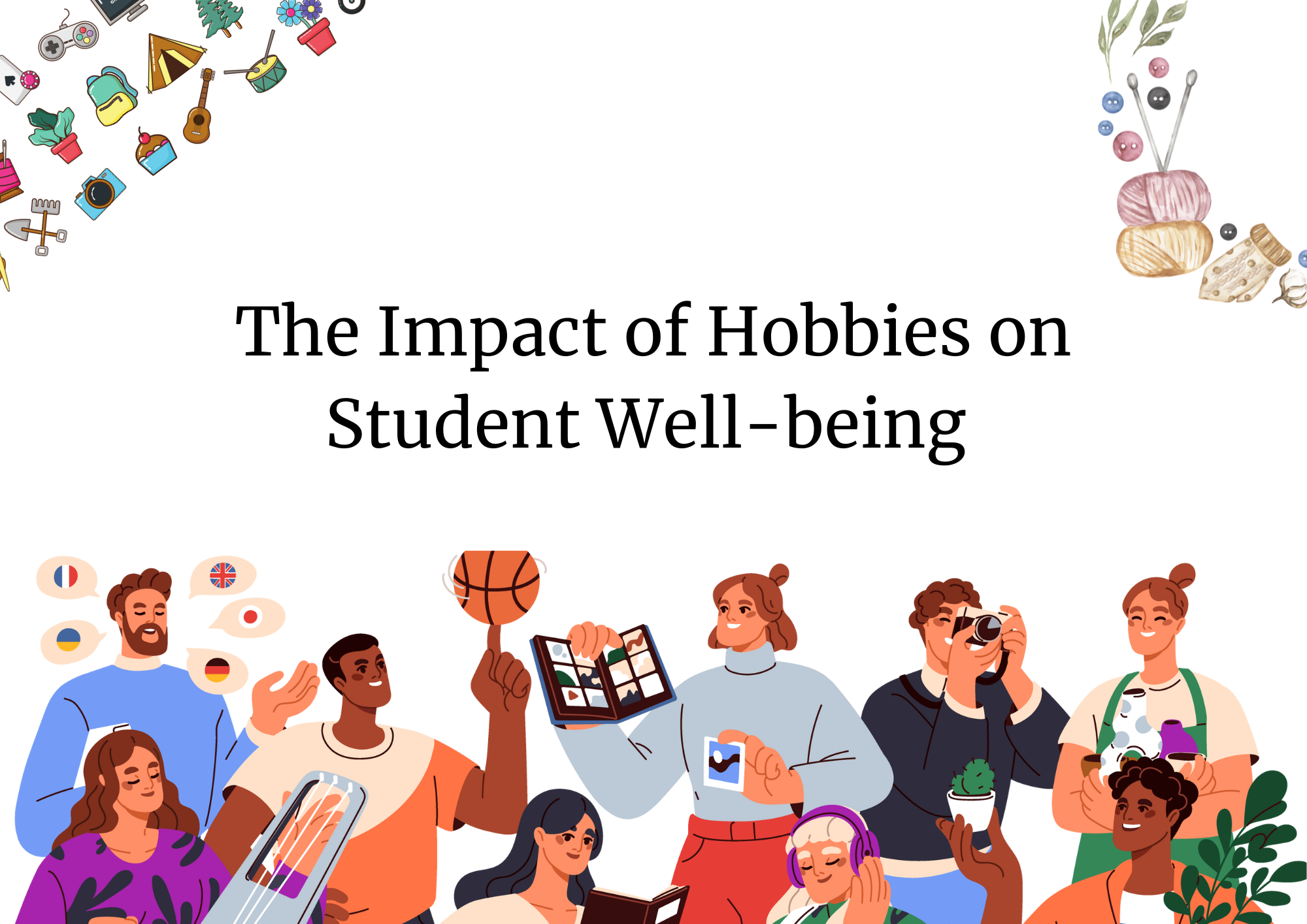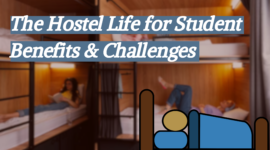In the modern academic landscape, the pursuit of knowledge and academic success often takes center stage, overshadowing the crucial elements of student well-being and productivity.
As students navigate through the challenges of rigorous coursework, exams, and societal expectations, their mental and emotional states can be heavily impacted.
The introduction of hobbies into the narrative of Student Well-being life introduces a paradigm shift, emphasizing the significance of personal fulfillment and balance.
The impact of hobbies on student well-being and productivity, unraveling the intricate ways in which these pursuits contribute to a holistic and thriving educational experience.
Definition of Hobbies

To embark on this exploration, it is essential to establish a clear understanding of what constitutes a hobby. Hobbies, in essence, are activities pursued for personal enjoyment, satisfaction, and relaxation rather than financial gain.
These activities encompass a broad spectrum, ranging from creative endeavors such as painting or writing, to physical pursuits like sports, and even intellectual engagements such as reading or coding.
The diversity of hobbies reflects the individualistic nature of personal interests, allowing students to explore and express their passions outside the confines of their academic responsibilities.
The State of Student Well-being

Before dissecting the positive impact of hobbies, it is imperative to acknowledge the existing challenges and stressors that students commonly face. Academic pressures, social expectations, and the transitional phase of adolescence contribute to an environment where student well-being is often compromised.
Statistics on student stress and mental health issues underline the gravity of this concern, emphasizing the urgent need for effective coping mechanisms.
Benefits of Hobbies on Student Well-being
Stress Reduction
Stress reduction stands as one of the primary benefits of incorporating hobbies into a student’s routine. Hobbies offer a reprieve from the constant academic demands, providing a designated time for students to unwind and engage in activities they genuinely enjoy.
Whether it’s the soothing strokes of a paintbrush, the rhythmic movements of dance, or the tranquility of meditation, these activities create a mental sanctuary, allowing students to temporarily escape the pressures of their academic pursuits.
Studies have shown that engaging in enjoyable activities triggers the release of endorphins, the body’s natural stress relievers, further fortifying the argument for the therapeutic nature of hobbies.
Mental Health Improvement
Beyond stress reduction, hobbies contribute significantly to the improvement of overall mental health. Regular engagement in activities that bring joy and satisfaction has been linked to enhanced mood, reduced anxiety, and increased resilience in the face of challenges.
For Student Well-being navigating the complexities of academic life, the mental health benefits derived from hobbies serve as a crucial support system.
The positive impact is not limited to the duration of the hobby itself; rather, it spills over into other facets of the student’s life, fostering a resilient mindset that can withstand the pressures of academic rigors.
Impact on Productivity

Improved Focus and Concentration
Contrary to the notion that hobbies might distract students from their academic responsibilities, evidence suggests that engaging in hobbies can enhance focus and concentration.
The immersive nature of many hobbies requires a heightened level of attention, honing the student’s ability to concentrate on a specific task.
For instance, a student involved in a musical instrument may develop a heightened sense of focus as they navigate intricate melodies or master complex compositions. This transferrable skill of concentration can then be applied to academic endeavors, leading to improved performance and productivity.
Time Management Skills
An often-overlooked aspect of Student Well-being life is the cultivation of effective time management skills. Balancing academic commitments with personal interests necessitates a strategic approach to time allocation.
Students who actively participate in hobbies develop a keen sense of time management as they navigate between their academic responsibilities and recreational pursuits.
This acquired skill becomes invaluable as students progress through their academic journey, preparing them for the multifaceted demands of professional and personal life beyond the educational realm.
Case Studies and Personal Testimonies
To provide a tangible understanding of the impact of hobbies, real-life case studies and personal testimonies offer a glimpse into students’ lives who have experienced positive transformations through their chosen pursuits.
These narratives serve as compelling examples, illustrating the diverse ways in which hobbies can influence an individual’s well-being and productivity.
For instance, a case study might highlight a student who, struggling with stress and burnout, discovered solace and renewed energy through engagement in a creative hobby like photography.
Personal testimonies further amplify the authenticity of these experiences, resonating with a broader audience of students who may find inspiration in the stories of their peers.
Challenges and Considerations
While the benefits of hobbies on student well-being and productivity are evident, it is crucial to acknowledge the potential challenges that may arise in integrating hobbies into a student’s life.
Balancing the demands of academia with personal interests requires thoughtful consideration and adaptation.
Time constraints, societal expectations, and individual circumstances can pose obstacles that must be addressed.
Recommendations
Building upon the insights gained from the exploration of the impact of hobbies, this section provides practical recommendations for educators, parents, and students. Educators can play a pivotal role in fostering an environment that values and accommodates diverse interests.
Parents can actively support their children in exploring and cultivating hobbies, recognizing the long-term benefits on well-being and academic success.
For students, the recommendations focus on self-awareness and proactive time management, encouraging them to prioritize activities that bring joy and fulfillment alongside their academic pursuits.
Conclusion
Exploring the impact of hobbies on student well-being and productivity underscores the vital role these activities play in fostering a balanced and fulfilling educational experience.
From stress reduction and mental health improvement to enhanced focus and time management skills, hobbies contribute multifaceted benefits that extend beyond the immediate gratification of personal enjoyment., educators, parents, and students alike must recognize and prioritize the integration of hobbies into the academic journey, understanding that a well-rounded and happy student is inherently a more productive and successful one.










